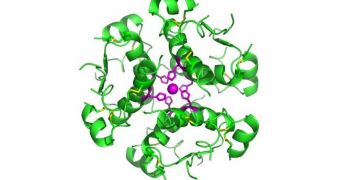Treating type II diabetes, obesity, and other conditions related to poor insulin processing in the body could become a lot easier, thanks to new discoveries made by researchers at the Washington University in St. Louis (WUSL) School of Medicine (WUSM).
In a series of experiments, researchers were able to discover a protein that plays an extremely important role in regulating the sensitivity that cells have to the hormone insulin. This chemical is responsible for controlling sugar levels in the bloodstream.
The potent regulator protein is called TBC1D3. Developing chemicals targeted at the pathways this molecule influences could lead to the development of better therapies against diabetes and obesity.
In a paper published in the February 13 online issue of the peer-reviewed, open-access scientific journal PLoS ONE, the WUSM team explains that the protein plays an important role in keeping insulin pathways open in cells, so that the latter can continue to take up glucose from the blood.
When type II diabetes sets in, fat cells and muscle cells become resistant to the effects of insulin, meaning they can no longer take in glucose. Normal courses of treatment include the administration of insulin, so that cellular pathways can be kick-started into accepting glucose.
What TBC1D3 does in healthy cells is keep the insulin channels opened for prolonged periods of time, so that cells can consume as much glucose as they want or need. One of the reasons why it took so long for it to be discovered is that it only exists in humans and certain primates, and not in test mice.
“When cells made more of the TBC1D3 protein, they had a much bigger response to insulin. We found that TBC1D3 significantly slows the deactivation of a molecule that relays signals from the insulin receptor. This enhances the cells’ response to insulin,” says Philip Stahl, PhD.
The investigator, who was the senior author of the PLoS ONE paper, holds an appointment as a professor of cellular biology and physiology at WUSM. He and his team focused on this molecule because they discovered it was involved in binding with G proteins.
The latter are a class of molecules that contribute to converting hormone signals – such as the one produced by insulin – into a series of particular actions inside cells. It was found that increased TBC1D3 levels interfered with an important, insulin-control feedback loop.
“We found that TBC1D3 activates a protein called PP2A. Flies had shorter lifespans when the PP2A gene was knocked out. This suggests that TBC1D3 also may influence the aging process,” Stahl concludes.

 14 DAY TRIAL //
14 DAY TRIAL //